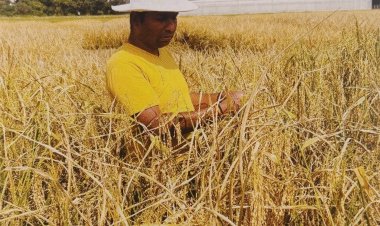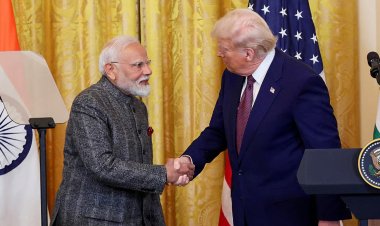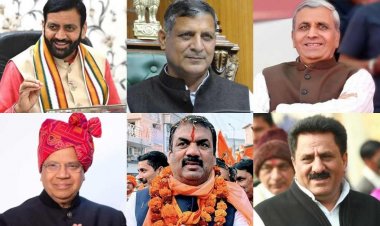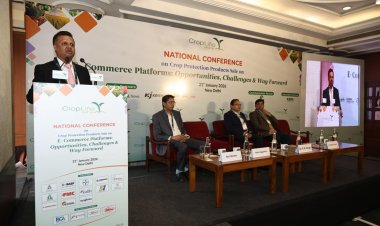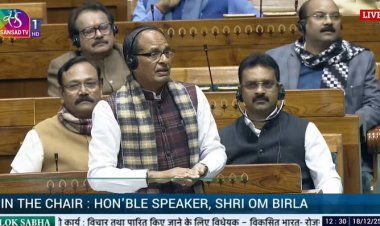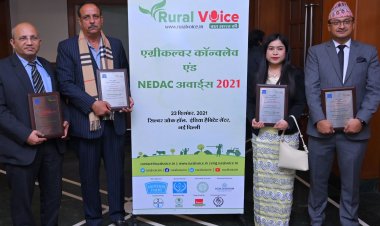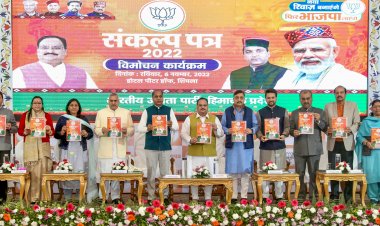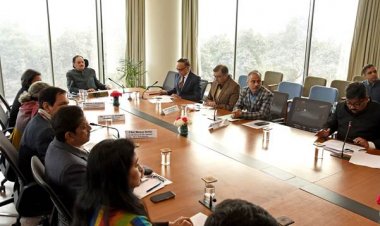Online skill-building of Gram Panchayat and Line Department functionaries in Uttar Pradesh: A suggestive framework
The skill-building of the elected and the non-elected panchayat officials is the sine qua non of making them knowledgeable. In this context, the skilling of the ERs and the officials of GPs and Line Departments is essential to enable the panchayats’ personnel to discharge their powers, duties and responsibilities effectively and also to strengthen the panchayats as rural local government.
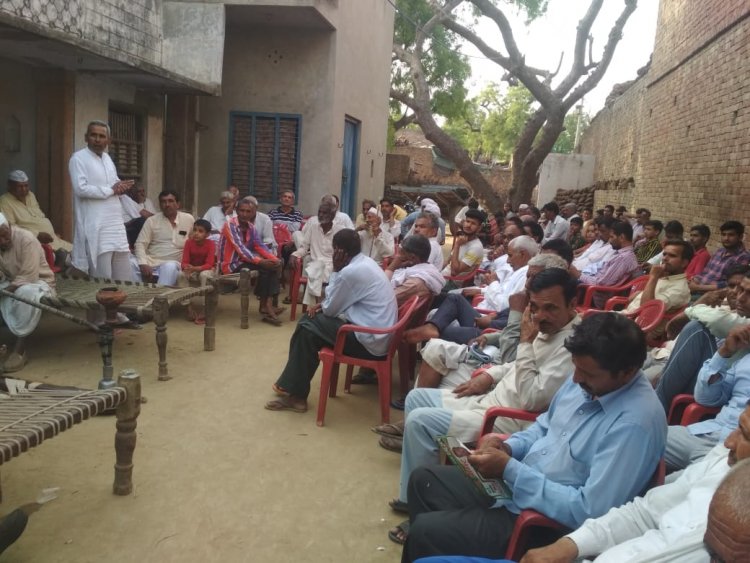
Context
The panchayat elections of Gram Panchayats (GPs), Kshetra Panchayats (KPs) and Zila Panchayats (ZPs) have just been concluded in Uttar Pradesh (UP). The total number of elected representatives (ERs) in these Panchayats has been 8,26,458 from 75 ZPs, 822 KPs and 58,791 GPs.
Most of the ERs are not aware of their powers, roles and responsibilities in the functioning of these local institutions. They have largely been working as guided by officials, who are also not much well-versed with the guidelines, rules and regulations of various programmes and schemes of rural development. Forget the preparation of the plan and its implementation, they are not aware even of the difference between GP and Gram Sabha. In such a situation, how would local be vocal? How would panchayat leaders be assertive? How would they be able to guide and supervise officials?
The skill-building of the elected and the non-elected is the sine qua non of making them knowledgeable. In this context, the skilling of the ERs and the officials of GPs and Line Departments is essential to enable the panchayats’ personnel to discharge their powers, duties and responsibilities effectively and also to strengthen the panchayats as rural local government. They should know how to prepare plans for economic development and social justice in an inclusive manner. They must also be aware of their powers and functions, ensuring democratic decision-making, understand the procedures and rules for plan preparation and implementation of several schemes for rural development, have knowledge about the management of funds, and have skill in managing routine office work at the panchayat level.
The idea of online training has become more relevant during the Covid-19 pandemic.
Thematic areas
Keeping in view the grassroots reality, the following thematic areas/topics/subjects have been planned to skill the grassroots leaders and the frontline workers: (i) History of decentralization, Constitutional mandate and Devolution of Powers to Panchayats, its importance – an overview; (ii) Behavioural aspects and Leadership and functioning of Gram Panchayats; (iii) Good governance, transparency, responsiveness, accountability; (iv) Powers broadly in term of Functions, Finance and Functionaries to Gram Panchayats; (v) Role and Responsibilities (conduct of business, constitution of subject committees, etc.) of Elected Representatives and Personnel; (vi) Mobilization of financial resources and their management; (vii) People’s participation or inclusive Panchayats; (viii) Panchayats and achieving Sustainable Development Goals; (ix) Effective implementation of Gram Panchayat Development Plan; (x) Implementation of Flagship programmes like Mahatma Gandhi National Rural Employment Guarantee Act, National Rural Livelihood Mission, Rural Housing Swachh Bharat Mission, etc.; (xi) Informal institutions/Community-Based Organizations/Civil Society Organizations in rural areas and Building social capital; (xii) Coordination/convergence/inter-sectoral linkages among different stakeholders; (xiii)Application of Information Technology including Public Finance Management System in the implementation of programmes; (xiv) Panchayats and Disaster Management; (xv) Best Practices and their adoption/adaptation; (xvi) Monitoring and evaluation of programmes; and (xvii) Implementation of the Gram Panchayat Development Plan (GPDP).
Nature of course
As is obvious from the heading, it would be an online course. Although reading material is not proposed to be given to the participants, they are expected to note down the main points from different trainers so that these inputs may be used as reference material in the future.
Skilling methodology
Although training will be imparted in online mode, efforts will be made to make it interactive and participative. Trainees would be given adequate opportunities to raise queries and questions during training. The discussion or delivery of lectures would be in the local language so that the ideas/guidelines/coverage are communicated properly. Practical and local examples would be given during the training course.
Those who would be acting as trainers would impart Training to Trainers (ToT) in training institutions like the State Institute of Rural Development and Panchayati Raj with the help of smartphones. The trained human resources would be imparting training to ERs and officials with the help of smartphones/laptops. After training, there would be a follow-up after six months by the trainers with the trainees about the level of understanding in terms of what they were trained and the extent of activities like holding meetings / calling all members of GPs / whether awareness about various schemes have materialized or not.
Every month the trainers would be asking the trainees about the practical aspects of the training imparted. Suppose, in online training, it is told that the GP would issue written agenda notes with the date and time of the GP meeting. The trainer would check it whether the GP has issued agenda notes for discussion with the date and time of meeting to the ward members or not. If not, the trainer would record the fact revealed by the ward member and send a recorded message to the nominated officers (who may be DPRO/DDO etc. of the State Government) for taking appropriate action in the matter. A similar procedure would be there for other things like the extent of funds received in the GP as taught in the online training. There would be an inbuilt mechanism for checking, evaluating and taking necessary action. The duration of the course would be two days.
Trainees/participants
The following would be the trainees of the course: (i) Pradhans (President of GP); (ii) members (ward members); (iii) chairpersons of subject sub-committees; (iv) Gram Sachiv; (v) Junior Engineer; (vi) MGNREGA Rozgar Sahayak; (vii) Farmer Producer Organization (FPO) chairpersons/members/CEO; (viii) Anganwadi workers; (ix) ASHA workers; (x) SHG members; (xi) Samuh Sekhi; (xii) member/chairperson WDT; (xiii) Lambardar/Chaudhary; (xiv) Voluntary Workers; (xv) Chokidar; (xvi) Tubewell Operator; (xvii) Mediapersons (rural desk); (xviii) teachers/facilitators/social activists engaged in Unnat Bharat Abhiyan; (xix) retired persons living in villages; and (xx) Agriculture extension workers.
The skill-building of the ERs and officials at the GP level is very important for better local governance in rural areas. Experiences of training and capacity-building programmes show that after training no regular follow-up has been done to see to what extent the things taught in the training sessions have been put into practice. As follow-up is missing in the existing training, there is no impact of training at the grassroots level because remedial action has not been initiated to address the issues of the trainees. Training and capacity building have become a formality, which is a serious obstacle in developing human resources at the local level.
The idea shared in this article, if implemented, would be a major step towards capacity building of ERs and officials of Panchayats in a better and cost-effective mode.
(The author is a former officer of the Indian Economic Service. The views expressed here are personal.)



 Join the RuralVoice whatsapp group
Join the RuralVoice whatsapp group


















